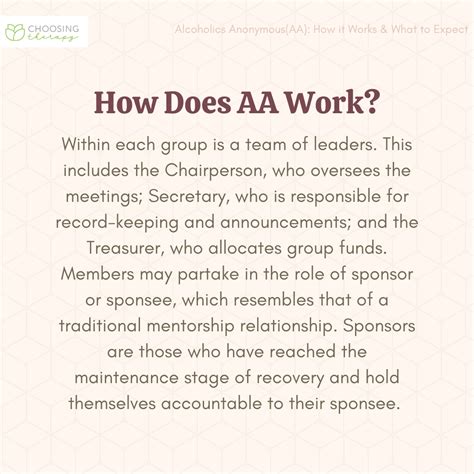Taking the first courageous step towards understanding Alcoholics Anonymous – whether for yourself or a loved one – is a powerful act. It can feel like stepping into a vast, uncharted territory, filled with new concepts and a different way of thinking. You're searching for clarity, a straightforward explanation, something tangible you can hold onto. I remember when I first encountered the vastness of AA literature; it felt like trying to drink from a firehose, and I just wanted a clear map. My search for a simple, clear guide to "aa how it works printable" led me to distill the core principles, and that's exactly what I want to share with you today.
This article is designed to give you that clear, digestible overview of how AA works, broken down into essential categories. Think of this as your personal, printable cheat sheet for the fundamental concepts of Alcoholics Anonymous. We’ll explore the bedrock principles, the practical tools, and the supportive community that has helped millions find a new way of life.
---
Understanding the Core: The 12 Steps of AA
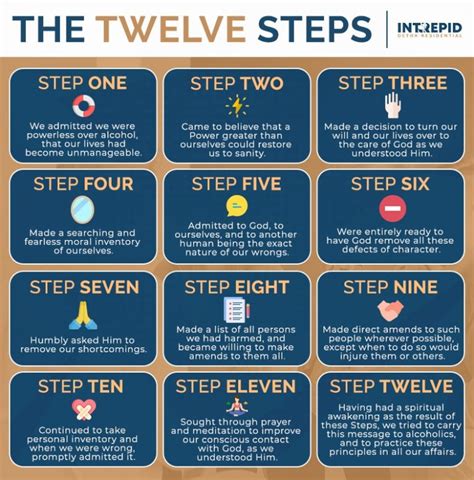
The 12 Steps are the spiritual foundation and the suggested path to recovery in Alcoholics Anonymous. They are a set of principles, spiritual in their nature, that when practiced as a way of life, can expel the obsession to drink and enable the sufferer to recover from alcoholism.
- Step 1: Admitted Powerlessness: Realizing and accepting that you are powerless over alcohol and that your life has become unmanageable. This isn't weakness; it's the gateway to strength.
- Step 2: Belief in a Higher Power: Coming to believe that a Power greater than ourselves could restore us to sanity. This Higher Power is personal, defined by you.
- Step 3: Decision to Turn Over: Making a decision to turn our will and our lives over to the care of God *as we understood Him*. This is about willingness, not perfection.
- Step 4: Moral Inventory: Making a searching and fearless moral inventory of ourselves. An honest look at past behaviors, good and bad.
- Step 5: Admitting Wrongs: Admitting to God, to ourselves, and to another human being the exact nature of our wrongs. This step fosters humility and connection.
- Step 6: Readiness to Change: Becoming entirely ready to have God remove all these defects of character. A willingness to let go.
- Step 7: Humbly Asking: Humbly asking Him to remove our shortcomings. It's about letting go of self-will and asking for help.
- Step 8: Amends List: Making a list of all persons we had harmed, and becoming willing to make amends to them all. Taking responsibility.
- Step 9: Direct Amends: Making direct amends to such people wherever possible, except when to do so would injure them or others. Action and healing.
- Step 10: Continued Inventory: Continuing to take personal inventory and when we were wrong promptly admitted it. A daily practice of self-awareness.
- Step 11: Prayer & Meditation: Seeking through prayer and meditation to improve our conscious contact with God *as we understood Him*, praying only for knowledge of His will for us and the power to carry that out. Spiritual growth.
- Step 12: Spiritual Awakening & Service: Having had a spiritual awakening as the result of these Steps, we tried to carry this message to alcoholics, and to practice these principles in all our affairs. Living the principles and helping others.
*When I first read Step One, it was like a lightbulb clicked. It wasn't about being weak; it was about realizing the fight was over, and a new path could begin.*
Building a Strong Foundation: The 12 Traditions of AA
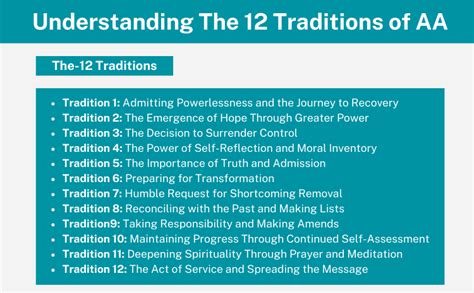
While the Steps focus on individual recovery, the 12 Traditions are about how AA groups function and relate to the world around them. They ensure unity, effectiveness, and the longevity of the fellowship.
- Tradition 1: Common Welfare: Our common welfare should come first; personal recovery depends upon AA unity. Unity is paramount for group survival.
- Tradition 2: Group Conscience: For our group purpose there is but one ultimate authority—a loving God as He may express Himself in our group conscience. Our leaders are but trusted servants; they do not govern. Decisions are made for the good of all.
- Tradition 3: Membership: The only requirement for AA membership is a desire to stop drinking. Inclusivity and simplicity.
- Tradition 4: Autonomy: Each group should be autonomous except in matters affecting other groups or AA as a whole. Local groups can operate as they see fit, within the Traditions.
- Tradition 5: Primary Purpose: Each group has but one primary purpose—to carry its message to the alcoholic who still suffers. Focusing on the core mission.
- Tradition 6: No Endorsements: An AA group ought never endorse, finance, or lend the AA name to any related facility or outside enterprise, lest problems of money, property, or prestige divert us from our primary purpose. Staying unentangled.
- Tradition 7: Self-Supporting: Every AA group ought to be fully self-supporting, declining outside contributions. Financial independence.
- Tradition 8: Non-Professionalism: Alcoholics Anonymous should remain forever non-professional. Our members serve, but do not get paid for their AA work.
- Tradition 9: Organization: AA, as such, ought never be organized; but we may create service boards or committees directly responsible to those they serve. Structure for service, not governance.
- Tradition 10: No Opinion on Outside Issues: Alcoholics Anonymous has no opinion on outside issues; hence the AA name ought never be drawn into public controversy. Maintaining neutrality.
- Tradition 11: Attraction, Not Promotion: Our public relations policy is based on attraction rather than promotion; we need always maintain personal anonymity at the level of press, radio, and films. Leading by example, protecting identities.
- Tradition 12: Anonymity and Principles: Anonymity is the spiritual foundation of all our Traditions, ever reminding us to place principles before personalities. Humility and equality.
*Understanding Tradition Three was incredibly reassuring when I first walked into a meeting; it made me realize the door was truly open to anyone who wanted help, without judgment.*
Tools for Daily Living: Practical AA Slogans & Concepts

Beyond the formal Steps and Traditions, AA offers a wealth of practical slogans and concepts that members use in their daily lives to maintain sobriety and navigate challenges. These often become shorthand for deeper principles.
- "One Day at a Time": Focus on the present moment, not the overwhelming future or the regretful past. This helps manage anxiety and makes sobriety achievable.
- "Easy Does It": Avoid overwhelming yourself; take manageable steps. Recovery is a marathon, not a sprint.
- "First Things First": Prioritize your recovery above all else. If sobriety isn't secured, nothing else will truly matter.
- "Live and Let Live": Focus on your own journey and allow others to live their lives, even if their choices differ from yours. Reduces judgment and resentment.
- "Let Go and Let God": Surrender control to your Higher Power, especially over things you cannot change. This is a powerful antidote to control issues.
- Sponsorship: A sponsor is an experienced AA member who guides a newcomer through the Steps, shares their experience, and offers support. This relationship is vital for many.
- Meetings: The core of the fellowship, providing a safe space for sharing experience, strength, and hope. Meetings offer connection and validation.
- Literature: AA’s foundational texts (like the Big Book and the 12 & 12) provide profound insights into the program and recovery.
- Service: Giving back to AA, whether by setting up chairs, making coffee, or becoming a sponsor. Service strengthens one's own sobriety.
- Gratitude: Cultivating an appreciation for life and recovery, which shifts focus from problems to blessings.
*My sponsor introduced me to "First Things First," and it truly helped me prioritize my recovery when life felt overwhelming, especially during difficult personal times.*
Connecting for Recovery: The Power of AA Fellowship
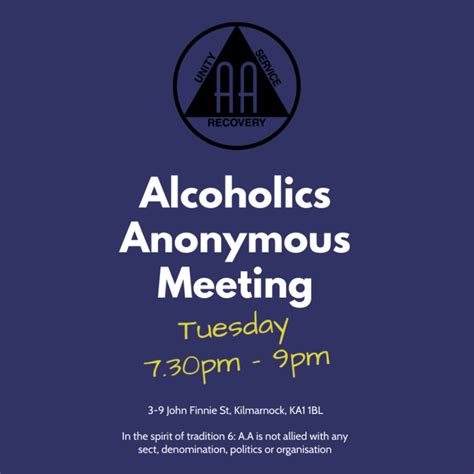
The "fellowship" aspect of Alcoholics Anonymous is often as crucial as the Steps themselves. It's the network of support, understanding, and shared experience that makes the program come alive.
- Shared Experience: Members connect through their common struggle with alcoholism, fostering a unique bond of understanding. You're never truly alone.
- Empathy and Non-Judgment: In AA meetings, you'll find people who truly "get it" without judgment, because they've likely been there themselves.
- Hope and Inspiration: Hearing others share their stories of recovery provides immense hope and shows that sobriety is indeed possible.
- Accountability: Being part of a group and having a sponsor can provide a gentle form of accountability, knowing others care about your progress.
- Sense of Belonging: For many who felt isolated by their drinking, AA offers a powerful sense of community and belonging.
- "Temporary Sanity": Meetings are often referred to as places where you can "borrow" sanity and perspective until you find your own.
- Diverse Perspectives: The fellowship is made up of people from all walks of life, offering varied perspectives on the Steps and life itself.
- Support Beyond Meetings: Many members form lasting friendships and offer support to one another outside of formal meetings.
*There’s a unique bond in the rooms; I once shared a struggle I thought no one could understand, and felt an instant connection with someone who had walked the exact same path, offering exactly the insight I needed.*
Starting Your Journey: How AA Meetings Work for Newcomers

Walking into your first AA meeting can feel intimidating, but understanding the basics can ease your mind. Meetings are the primary way members connect and share the message of recovery.
- Finding a Meeting: Meetings are listed online on local AA websites. They vary in type (Open, Closed, Big Book, Step Study, etc.). Newcomers are welcome at Open meetings.
- Types of Meetings:
- Open Meetings: Anyone can attend, including non-alcoholics interested in learning about AA.
- Closed Meetings: For alcoholics or those who have a desire to stop drinking.
- Speaker Meetings: A member shares their story of what it was like, what happened, and what it’s like now.
- Discussion Meetings: A topic is chosen, and members share their experience on it.
- Anonymity: At meetings, you only need to use your first name. What's shared in the room stays in the room. This creates a safe space for honesty.
- Sharing (Optional): You don't have to share if you don't want to, especially in your first few meetings. Many just listen.
- Collecting "Chips": Many groups recognize sobriety milestones with chips or medallions, a symbolic celebration of progress.
- Passing the Basket: AA groups are self-supporting through voluntary contributions. There's no fee to attend meetings.
- No Pressure: There's no pressure to commit to anything. Just show up, listen, and see if it's for you.
- After the Meeting: Often, members gather for fellowship before or after the meeting. This is a great opportunity to connect.
*Walking into my first meeting was terrifying, but just sitting and listening, as suggested by a friend, made it manageable. I didn't have to say a word, just absorb.*
Sustaining Growth: Service & Continued Progress in AA

Recovery isn't just about stopping drinking; it's about a new way of life and continued personal growth. Service and deepening one's understanding are key to long-term sobriety.
- "Carrying the Message": The 12th Step emphasizes helping other alcoholics. This can be as simple as sharing your story or being available to a newcomer.
- Sponsorship: As you gain experience, you might be asked to sponsor another alcoholic, which is a profound way to reinforce your own recovery.
- Group Service: Volunteering for roles within your home group (e.g., secretary, treasurer, setting up chairs, making coffee) strengthens the group and your commitment.
- General Service: Engaging in service beyond the group level, such as participating in intergroup committees or attending district meetings, helps AA as a whole.
- Reading & Studying Literature: Continuously revisiting the Big Book, 12 & 12, and other AA-approved literature deepens understanding.
- Seeking Spiritual Growth: Continuing to practice Step 11 (prayer and meditation) to improve conscious contact with your Higher Power.
- Applying Principles to All Affairs: Moving beyond just not drinking to truly living the principles of honesty, integrity, and humility in all aspects of life.
- Humility: Understanding that you don't have all the answers and remaining open to learning and growth.
*When I started chairing meetings, I realized how much my own recovery deepened through helping others. It wasn't about me anymore, and that paradoxically made my sobriety stronger.*
Embracing Change: The Promises of the AA Program
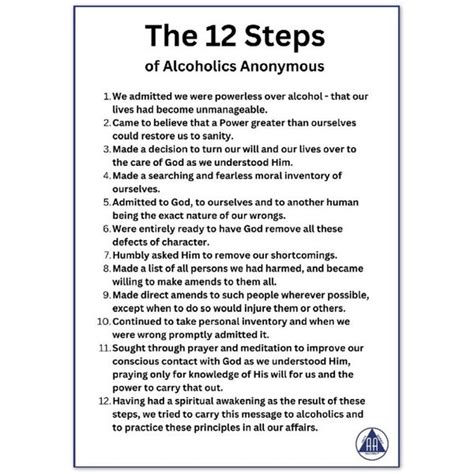
The Big Book of Alcoholics Anonymous outlines "The Promises" as what you can expect if you earnestly work the program. They offer a vision of a new, fulfilling life free from the bondage of alcohol.
- Freedom from the Obsession to Drink: The primary promise is that the mental obsession with alcohol will be removed.
- Newfound Peace: A sense of serenity and inner calm that was unattainable while drinking.
- Understanding and Serenity: We will comprehend the word serenity and we will know peace.
- Freedom from Fear: We will not regret the past nor wish to shut the door on it. We will know a new freedom and a new happiness. No longer will we be driven by fear, guilt, or resentment.
- Purpose and Direction: We will intuitively know how to handle situations that used to baffle us. We will suddenly realize that God is doing for us what we could not do for ourselves.
- Meaningful Relationships: Our whole attitude and outlook upon life will change. Fear of people and economic insecurity will leave us.
- Utility and Usefulness: We will be able to do things which we could never do before.
- Happiness and Joy: We will begin to know moments of true happiness and joy, even amidst life's challenges.
- Connection to Life: The feeling of being estranged from life will depart.
- Being of Service: We will feel useful and wanted in the world.
*Looking back, the peace of mind and genuine contentment I found was something I couldn't have imagined possible years ago when I was trapped in my addiction.*
---
Tips for Personalizing Your AA Journey & Understanding

AA is a program of "suggestion," not rules. While the core principles are consistent, how you engage with them can be deeply personal.
- Find a Sponsor You Connect With: This is paramount. Look for someone who has what you want, who has worked the Steps, and with whom you feel comfortable being honest. I found that truly absorbing the material meant revisiting it, sometimes daily, and focusing on one small section until it clicked for me.
- Explore Different Meetings: Not every meeting is the same. Try different days, times, and types (speaker, discussion, Big Book study) until you find one where you feel comfortable and hear a message that resonates.
- Read the Literature: Don't just rely on what you hear in meetings. The Big Book and the 12 & 12 contain profound insights. Read them, reflect on them, and discuss them with your sponsor.
- Journaling: Writing down your thoughts, fears, and insights can be incredibly powerful for self-reflection and processing the Steps.
- Focus on Progress, Not Perfection: Recovery is a journey, not a destination. You won't master the Steps overnight. Be patient and gentle with yourself.
- Ask Questions: Never hesitate to ask your sponsor or other trusted members questions about anything you don't understand.
Common Pitfalls: What to AVOID When Exploring AA's Principles
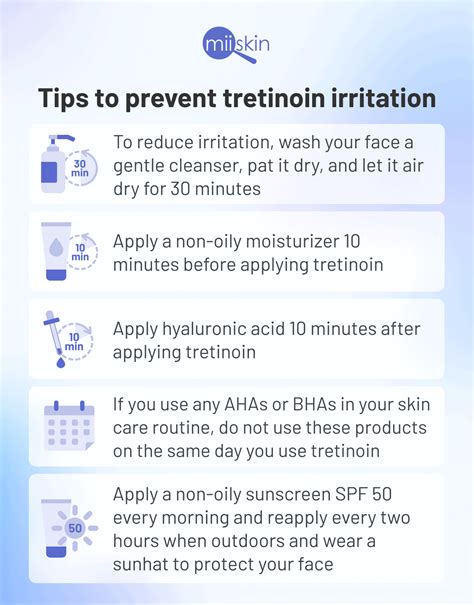
While AA offers a clear path, there are some common missteps that can hinder progress. Being aware of these can help you navigate your journey more smoothly.
- Over-Intellectualizing the Steps: Don't try to "figure out" or analyze every single nuance before taking action. Some steps require action, not just intellectual understanding. Don't be like I once was, trying to dissect every word before I actually *did* anything; sometimes, simply showing up and listening is the most profound action.
- Comparing Yourself to Others: Everyone's journey is unique. Resist the urge to compare your progress, challenges, or personal story to someone else's. Focus on your own path.
- Isolating Yourself: Addiction thrives in isolation. Actively engage with the fellowship. Attend meetings, get a sponsor, and connect with other members.
- Rushing the Steps: The Steps are a process. Working them thoroughly and honestly, rather than rushing through them, yields deeper and more lasting change.
- "White-Knuckling" It: Relying solely on willpower without engaging in the spiritual principles or seeking help from the fellowship often leads to relapse.
- Dismissing the "Higher Power" Concept: Even if you're not religious, keep an open mind to the idea of a Power greater than yourself. It could be the group, nature, or a universal energy.
- Not Asking for Help: AA is built on the premise of asking for and receiving help. Don't suffer in silence; reach out when you need support.
---
This "aa how it works printable" guide is just the beginning. The real magic happens when you start to apply these principles in your life, one day at a time. This journey is yours, and Alcoholics Anonymous offers a path paved with understanding, support, and hope. Now, go embrace the wisdom, print out what resonates, and take that next courageous step. You've got this.
